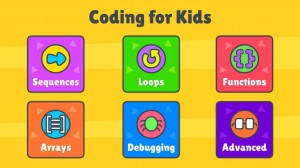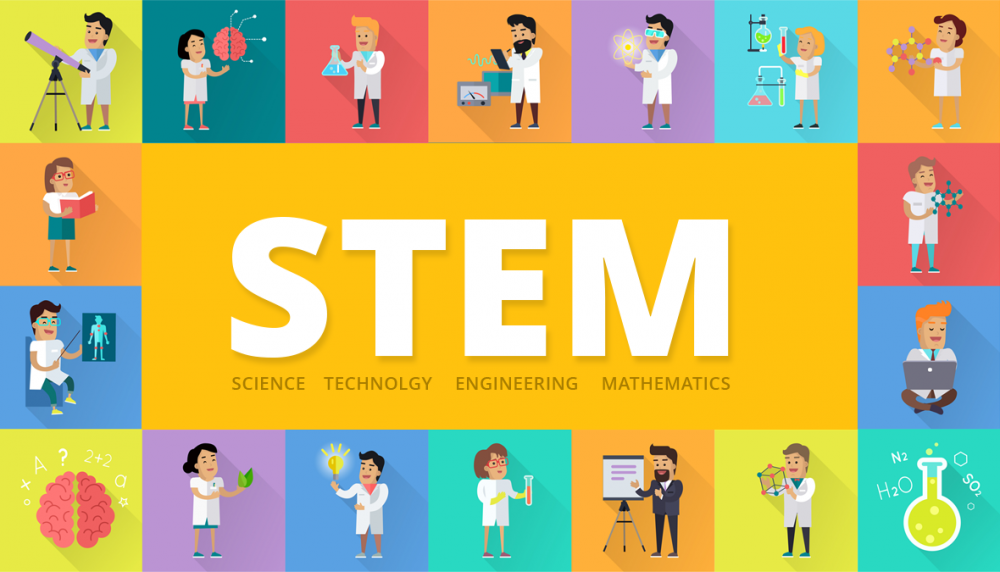
An introductory course in computer
programming/software engineering and applications. The course introduces students to the fundamentals of computer programming. Students will learn to design, code, and test their own programs while applying mathematical concepts. Teachers introduce coding concepts and problem-solving skills to beginning students through a programming language such as C++, C#, Java, Python, or JavaScript. The course that follows this course is titled Computer Programming 2. This follow-up course reviews and builds on the concepts introduced in the course. This second course introduces students to more complex data structures and their uses, including sequential files, arrays, and classes. Students will learn to create more powerful programs.
Core Standards of the Course
Strand 1
Students will be familiar with and use a programming environment.
Standard 1
Demonstrate knowledge of software concepts.
- Identify software categories e.g. application software, web-based software, mobile application, or operating system.
- Describe the difference between an interpreted language vs a compiled language.
Standard 2
Demonstrate the ability to compile, debug, and execute programs.
- Demonstrate how to use an editor/IDE to compile and run programs.
- Understand the difference between syntax, run-time, and logic errors.
- Demonstrate how to debug programs.
Performance Skills
Become familiar with and use a programming environment.
Strand 2
Students will employ accepted programming methodology.
Standard 1
Demonstrate the ability to use good programming style.
- Demonstrate how to use white space properly.
- Employ an appropriate naming convention.
- Construct identifiers with meaningful format (i.e.: camelCase, underscores, and ALLCAPS).
Standard 2
Understand that software development is a process and use a variety of creation techniques to develop 21st Century Skills. (www.p21.org)
- Understand specifications and requirements for computer programs.
- Break down the problem into sub-components.
- Design solutions using algorithms and other problem solving techniques.
- Write the code for a program.
- Test programs for errors and proper functionality.
- Provide internal and external documentation for a program during development.
- Redo all steps as needed.
Standard 3
Identify the syntactical components of a programming language.
- Identify keywords, identifiers, operators, and operands.
- Identify the entry-point of a program.
- Identify statements and expressions in a program.
- Identify program components such as functions, methods, or procedures.
Performance Skills
Employ accepted programming methodology.
Strand 3
Students will properly use language-fundamental commands and operations.
Standard 1
Demonstrate the ability to use basic elements of a specific language.
- Write programs formatted based on the conventions of the utilized language.
- Declare, initialize, and assign values to constants and variables.
- Demonstrate the ability to use input and output commands.
- Communicate clearly with output values stored in identifiers. (www.p21.org)
- Demonstrate the ability to use strings.
Standard 2
Employ basic arithmetic expressions in programs.
- Use basic arithmetic operators (modulus, multiplication, division, addition, subtraction).
- Understand order of operation of expressions.
- Write expressions that mix floating-point and integer expressions.
Standard 3
Demonstrate the ability to use data types in programs.
- Declare and use variable types (primitives, reference, or object).
- Declare and use constants.
- Know the difference between data types and their application (boolean, integer, floating point, strings).
Performance Skills
Properly use language-fundamental commands and operations.
Strand 4
Students will properly employ control structures.
Standard 1
Demonstrate the ability to use relational and logical operators in programs.
- Compare values using relational operators.
- Form complex expressions using logical operators.
Standard 2
Demonstrate the ability to use decisions in programs.
- Employ simple IF structures.
- Use IF-ELSE structures.
- Write programs with nested IF-ELSE structures.
- Make multiple-way selections (switch, case).* (Language specific)
Standard 3
Demonstrate the ability to use loops (iteration) in programs.
- Use initial (starting) value, terminal (ending) condition, and incrementation (change) in loops.
- Construct pretest loops (while), posttest loops (do-while), and for loops.
- Describe the various ways that loops can end (i.e., sentinel, break, condition fail, etc.).
- Design loops so they iterate the correct number of times (i.e., off by one errors, infinite loops, etc.).
- Accumulate running totals using loops.
- Utilize nested loops.
Standard 4
Demonstrate the ability to use modularity in programs using functions or methods.
- Demonstrate how to use language-defined functions and/or methods. *
- Utilize value and/or reference parameters. *
- Understand the scope of identifiers (local, global (class), and instance variables). *
- Return values.
Performance Skills
Properly employ control structures.
Strand 5
Students will demonstrate knowledge of current ethical issues dealing with computers and information in a global society using 21st Century Skills.
Standard 1
Demonstrate knowledge of the social and ethical consequences of computers.
- Explain the ethical reasons for creating reliable and robust software.
- Explain the impact software can have on society (i.e., privacy, piracy, copyright laws, ease of use, etc.).
- Show how security concerns can be addressed in an application (i.e., biometrics, passwords, information hiding, etc.).
- Describe how computer-controlled automation affects a workplace and society.
- Give examples of ways to protect information on computer systems (attacks, viruses, malware, etc.).
Performance Skills
Demonstrate knowledge of current ethical issues dealing with computers and information in society.
